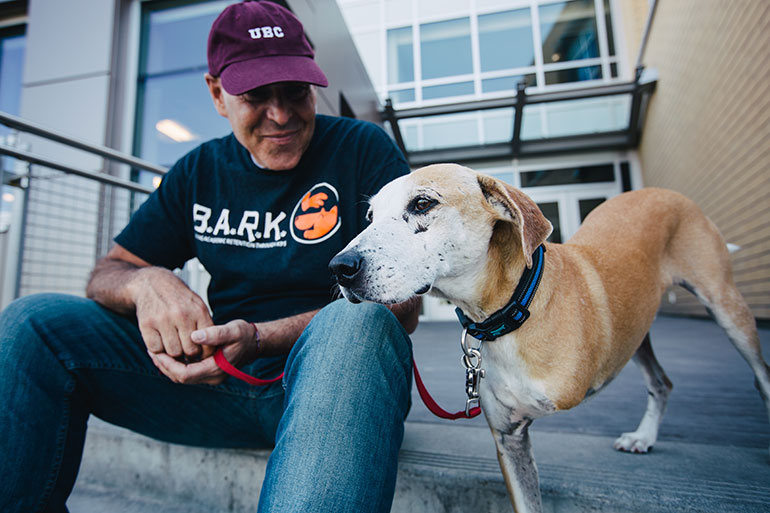Funds will bring Truth and Reconciliation Calls to Action into the classroom
As Canada seeks responses to the Truth and Reconciliation Commission Calls to Action, university researchers and local partners have come together to seek respectful ways for educators to align their teaching practices toward reconciliation.
UBC Okanagan is receiving a $1 million Social Sciences and Humanities Research Council (SSHRC) grant to establish a partnership research initiative for the next five years.
The project—Co-Curricular-Making: Honoring Indigenous Connections to Land, Culture and the Relational Self—is led by Margaret Macintyre Latta, director of UBC Okanagan’s School of Education. Community partners include the Okanagan Nation Alliance, Central Okanagan Public Schools, IndigenEYEZ, Kelowna Art Gallery, Kelowna Museums Society and the universities of Alberta and Ottawa.
“As partners committed to education’s importance within reconciliation, we will be working together to map out needed understandings, and enactment, to enhance collective efforts towards truth, reconciliation and healing in classrooms to realize the transforming potential of education,” says Macintyre Latta. “We are so appreciative of the community support and investment in this project.”
The partnership will bring local Elders and Knowledge Keepers together with participating educators and the extended community. By the end of the five-year project, teachers and their students will have gained deeper understandings of Syilx culture with teachings that connect land, culture and understandings of self in the world.
“We’ll be building an understanding of how to help educators create safe spaces for challenging discussions across diversity and inequality. We’ll be in the schools with them as they support students to make meaning out of the Truth and Reconciliation Commission content, see other points of view, and learn from our shared history in order to bring change that makes us all stronger together,” says Kelly Terbasket, program director and co-founder of IndigenEYEZ.
University and community partners will design and deliver learning opportunities that will help teachers in confronting and challenging the colonizing practices that have influenced education. These experiences will study the education conditions that challenge participation in reconciling conversations, grapple with personal narratives, and grow understandings of the histories of colonized and colonizers.
"Central Okanagan Public Schools have just signed an Equity in Action Agreement with our Indigenous communities. The document reflects the district's intention to create equity in academic results, self-determination and cultural pride and awareness for our Indigenous students. This grant will help staff have the necessary curricula and academic supports and resources to make this aspiration a reality. We are excited to be learning together," says Kevin Kaardal, superintendent of schools and CEO of Central Okanagan Public Schools.
Deputy Superintendent of Schools Terry-Lee Beaudry has been the district's lead collaborator in working closely with the Okanagan School of Education and Indigenous community partners to support the development of the SSHRC grant proposal.
"The announcement of this grant will enable greater community and post-secondary collaborations,” says Beaudry. “This will help foster equitable practices for each learner in our district to attain a deeper understanding of human rights, responsibilities and their part in reconciliation."
“This is a project that pursues and is open to new teachings, new practices, new possibilities, new transformed societies that build upon a civil society and builds-up people and how we relate to one another, our environment and our planet. All critical to all our survival,” says Terbasket. “Indigenous education is about knowing where you are and where you come from—our connection to land and each other.”
About UBC's Okanagan campus
UBC’s Okanagan campus is an innovative hub for research and learning founded in 2005 in partnership with local Indigenous peoples, the Syilx Okanagan Nation, in whose territory the campus resides. As part of UBC—ranked among the world’s top 20 public universities—the Okanagan campus combines a globally recognized UBC education with a tight-knit and entrepreneurial community that welcomes students and faculty from around the world in British Columbia’s stunning Okanagan Valley.
To find out more, visit: ok.ubc.ca

